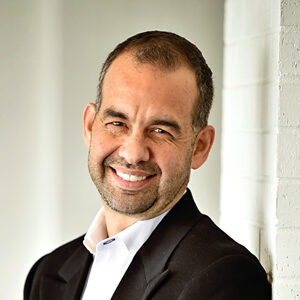Deep Work: 4 Quick Tips for your QA Team

You know that state of flow - where work becomes effortless and time passes in a blur? For knowledge workers, Cal Newport coined the term ‘Deep Work’, a state of deep concentration and focus. Creating an environment that fosters deep work can help your software testers and developers achieve their highest quality work.
Developing and fostering this environment has both cultural and infrastructure elements. It can be straightforward to implement.
These are our top 4 tips.
1) Communication Expectations
Quick test: if your tester hasn’t responded to an email in an hour, are they:
- Goofing off
- Lost in concentration, focusing on their work
Your answer is a reflection of how your organization perceives the link between communication and work. If your tester is expected to respond to every email, every message within minutes of receiving it, they can’t possibly enter that state of deep work and produce high-quality work.
There’s an extra level of trust with this in our current WFH environment. There’s this odd, unfounded notion that if a tester doesn’t respond to a message right away it’s because they’re not working. Which is counterintuitive, because if your tester is actually working - they are focused and shouldn’t be pausing every five seconds to check their email.
Recommendation: Encourage your testers to turn off their notifications, to not feel like they have to respond to emails or Slack messages instantaneously. Establish a culture where the communication norms are for your testers to respond to messages (email, slack notifications, etc.) during their breaks from deep work every two hours or so.
2) The Right Equipment
One of our testers shared that he once had a work computer that took 5 minutes to boot, regularly froze, and made him lose 15-30 minutes every day - just waiting for his computer to function. And every time it froze, he lost his momentum. He lost 52 hours every year, just waiting for a slow computer. This experience doesn’t just keep your tester from achieving deep work, it’s also soul-crushingly frustrating.
The right equipment empowers software testers to focus and concentrate, uninterrupted. Hardware is of course important, but the other part of the equation is ergonomically correct equipment. Because if there’s anything worse than a constantly freezing computer, it’s a lousy setup where testers are uncomfortably shifting around in their chair or distracted by back pain.
Hardware recommendation: SSD, 16GB RAM, Two monitors (min 27”), a comfortable keyboard and mouse.
Desk recommendations: Standing desk, comfortable chair. Considering the current WFH environment, if your budget allows, a stipend for your testers to get a good chair and desk would be much appreciated - and reap productivity dividends.
3) A Blank Calendar
What does a good day look like for a software tester or developer? A day free from meetings - a blank day that can be dedicated to thinking, concentrating, and focusing.
While a blank day might not actually be feasible, we can empower our testers to do their best work by being mindful of their need for uninterrupted blocks of time. A huge part of this is establishing a culture and infrastructure that supports and encourages uninterrupted blocks of time - where managers understand that testers need this time to create their best quality work.
Recommendation: Schedule meetings early, around lunchtime, or at the end of the day. Ask your testers about their deep work and be respectful of it when you need to schedule team meetings.
4) A Quiet Space
Open offices are great for collaboration. They’re terrible for focused work. Trying to achieve that state of deep work in the midst of office cacophony is nearly impossible. While this isn’t an issue at the moment due to COVID and everyone working from home, we will return to the office and your testers will need a space where their attention doesn’t get scattered.
Recommendation: Provide the quiet space your testers need to focus, such as cubicles or quiet meeting space - or even noise-canceling headphones.
Want to learn more about deep work and how it can benefit your organization?
We would be happy to share more about how you can create the ideal deep work environment in your organization. Schedule a time to chat and learn more!

Michael Faulise
Michael Faulise is the Founder and Managing Partner at tap|QA, a global company that specializes in software testing services and solutions for businesses. Michael focuses on sales and delivery where he consults with clients in the areas of software development, automation, quality assurance and testing, technology and process training, and process improvement. In 25+ years of industry experience, he has seen software development evolve along multiple paths of various methodologies but has found quality has remained essentially constant.
Have a QA question?
Our team would love to help!